Africa
CASE NR.5
Model: Anna Fenna
MUA: Jessie Gein
Client: "DARE" shoes
French colonialism in Africa
As a part of the First Colonial Empire, France had its presence in Africa from 17th to 19th century. Main project focused on plantations that were cultivated by forced African slaves. Labor conditions for enslaved people were particularly bad, including famines, diseases and poor living conditions, that all contributed to high percentage of deaths among forced workers. Later, the company’s focus expanded towards not only slave labor, but the slave trade as well.
The Second Colonial Empire refers to the period of 19th and 20th centuries. France had started rapidly claiming territories of West and Equatorial Africa, which was known as the “Scramble of Africa”. France had also introduced a protectorate regime in Tunisia (1881) and Morocco (1912), which additionally contributed to its power over Africa. The French Colonial Empire reached its peak during the interwar period.
Due to the growth of nationalist movements in Africa, the international pressure and the change in domestic politics, the process of French decolonialization officially begun in 1958, when Guinea gained independence. But even before that, efforts to put an end to colonialization existed, such as the Algerian war for independence (1954-1962). The most prominent year for decolonialization was 1960, “The year of Africa”, when 14 colonies became independent. French colonial rule formally ended in 1977, when Djibouti, as the only remained colony gained sovereignty.
During the period of colonialization, France had a strong impact on African countries, introducing its language, culture and religion, as a part of “Civilizing mission” France was conducting. It negatively impacted the disruption of governance, economic difficulties due to the exploitation, incapability to improve general living conditions, social inequality and emerging of nationalist movements. This contributed to the shaping of societies and could be seen in works of the African artists as well.
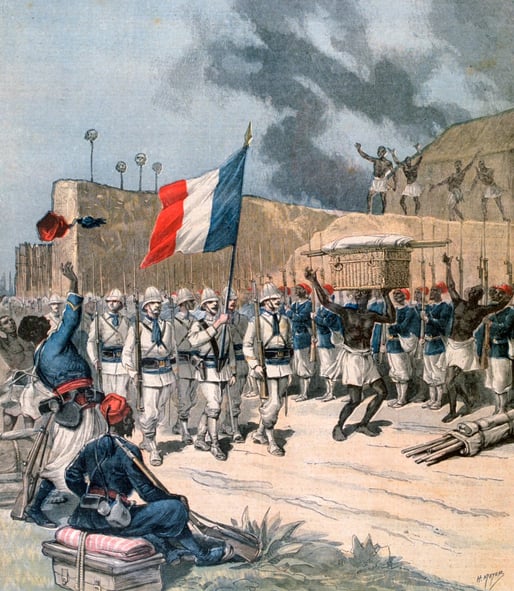

French countribution to African art
During the period of colonization, French settlers took upon themselves a “civillizing mission”. They regarded native population as primitive and believed it is their responsibility to civilize them, which they sought to achieve through education. In this manner, French had a high interest in “improving” African art, as it is a big part of the culture and the society, and has a power to send a message to the people. This marked a new era of African art, as French introduced African artists to new materials and techniques, such as bronze casting and oil painting, that allows for more detailed and realistic portrays. Canvas and paper also beacame more available during this period, which contributted to the creation of art that is easier to sell. In order to more efficiently spread their influence, French established art schools throughout the continent, intended for small portion of African artists who would create works in the European tradition. In a way, this project of commercialization of African art had a negative impact on African cultural legacy, since artist started shifting away from traditional techniques and styles, for their art to appear more to the European buyers. Main art forms of this period were sculptures, paintings, textiles, and photography (which was introduced by French).
Besides promoting French art style, colonizers began a campaign of suppression and marginalization of indigenous art. They viewed African art and artifacts as primitive and uncivilized, and many objects were stolen to take back to Europe as “trophies”. This resulted in the erasure of important aspects of African history and identity.
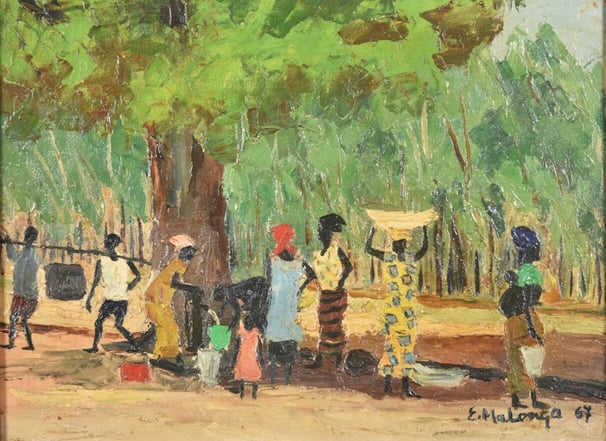

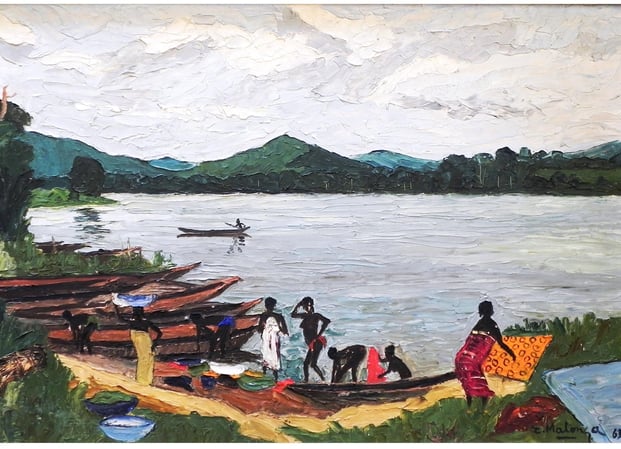

Eugène MALONGA (1930-2005), "Jour de marché" 1967
Eugène Malonga (Congolese, 1930-2005)
Explore our products
Provide a short description of categories listed below.
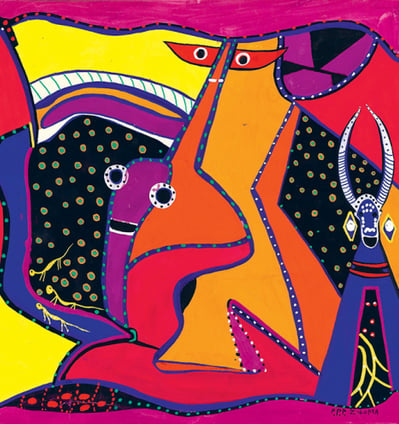

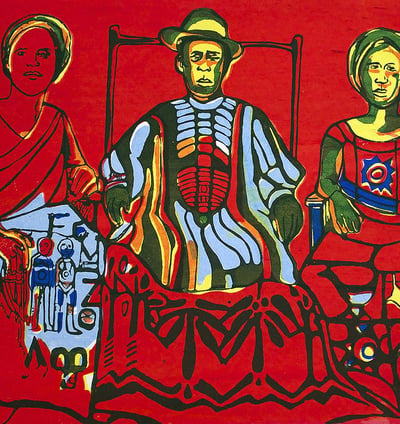

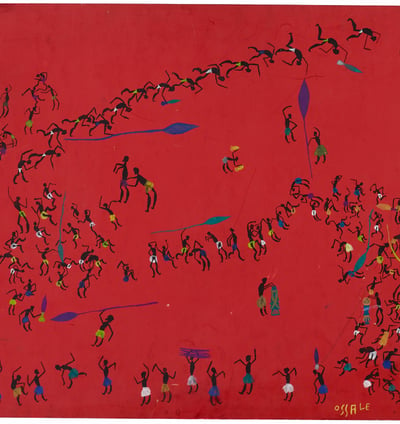

Jacques Zigoma,
Middy, Gouache on vellum, 1955
Félix Ossali,
Dande ekongo, Gouache on paper
Bruce Onobrakpeya
Man and two wives, 1960-1970
Watch the Video to Explore More
Or someone else will hire you to build theirs. Here is how you can take action – starting today.
Address
1030 Av. Centrale, 38400 Saint-Martin-d'Hères, France
Contacts
+33 7 84 20 50 18
Agha@virtuegrowth.agency
Proudly powered by Virtue
Subscribe to Our Newsletter


